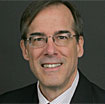Theology of Preaching: The preacher’s understanding of the kind of theological event or transaction with God taking place during preaching.
Theologies of preaching ask questions such as: What is God doing during the sermon? What is the nature of the Word of God in preaching? It is important for preachers to consider how to understand preaching as God’s Word.
Recently, the homiletic conversation about the theology of preaching has revolved around the type of theological imagination developed by the preacher. Mary Catherine Hilkert speaks of two basic forms of theological imagination in preaching: a dialectical imagination which locates God’s redemptive work more narrowly in the redemptive actions of God in and through Jesus Christ, and a sacramental imagination which locates God’s Word more widely within the whole of God’s creation. This dichotomy is helpful, but it paints in rather broad strokes and can obscure a more detailed range of theologies of preaching currently in existence.
First, there is the existential theology of preaching. In this theology, preaching supplies a divine Word that answers a crisis or conflict at the heart of human existence. Theologians such as Paul Tillich encouraged this way of thinking about preaching. Human beings are finite, attempting to secure themselves in the world via any number of self-securing idolatries in order to deflect, if only for a while, the deep sense that life is ultimately meaningless and ruled by despair and death. What sermon listeners need, therefore, is a Word of redemption and meaning from outside this situation that will answer their deepest questions about life and death. Preaching brings this Word. The ancient biblical model for this theology of preaching is found in the oracular prophets. Oracle is a form of prophetic or redemptive speech occurring at the center of some process of human inquiry (in Hebrew, darash YHWH or inquiring of God). There are many instances of oracle throughout the biblical witness, including the interpretation of dreams (Joseph and Daniel), divination, interpretation of lots cast or the oracle of the ephod, Saul and the woman of Endor, and those instances in which Jesus answers an existential question in a way that opens up a new set of redemptive possibilities (the healing of the paralytic, Zaccheus, Nicodemus, the Syrophonecian Woman, the woman at the well, the woman with the flow of blood, and so on).
Directly counterposed to this theological model is a transcendent theology of preaching. In the transcendent approach, the preacher announces a Word from God that is in no way an answer to human existential questions. To make the Word of God into a response to questions is to severely limit the Word of God. The preacher with a transcendent theology of preaching believes that we do not know the right questions until we have heard the Word. The Word of God has absolute priority. Since we cannot look within our own experience or even within history to find this Word, we have to rely utterly upon the biblical testimony. We find this divine Word in the Bible, and in the Christ witnessed to in Scripture. Theologians such as Karl Barth have encouraged this way of thinking about preaching.
This transcendent model and the existential model are typically in great tension with each other. In today’s homiletic context, this tension takes the shape of the debate between the liberal New Homiletic and postliberal homiletics debate. The ancient biblical model for this theology of preaching is the kerygmatic preaching of the apostles in the Book of Acts. Instead of relating the gospel to immediate human needs, these preachers simply repeated again and again the divine kerygma, the story of Jesus Christ.
A third model is the ethical-political theology of preaching. These preachers proclaim God’s Word as an alternate vision to injustice, inequities of power, suffering, and oppression. Evil and sin are structural in nature and can take the form of principalities and powers that put a stranglehold on all of human life, especially those who are most powerless. God’s Word, for this preacher, is a Word of lamentation, resistance, compassion, divine justice, and hope.
Today, ethical-political theologies of preaching take their primary impetus from liberation theology, black theology, womanist theology, and feminist theology. Ancient biblical models for ethical-political preaching stretch from the prophetic preaching of the Hebrew prophets to Jesus’ proclamation of the kingdom of God. In all these forms of preaching, the preacher resists imperial power and sets forth an alternative vision for the world. Two other important biblical models for ethical-political preaching are found in the concepts of testimony, and in the image of the preacher as fool for Christ. In both of these models the preacher takes an unpopular stand at the expense of ridicule or even death.
A fourth model is the organic-aesthetic theology of preaching. In this model, God’s Word is available all of the time at a barely whispered level, deep within the organic interconnectedness of all living things. God’s Word is the creative Logos, which is ordering all of reality from the molecular to the cosmic level with ever-increasing organic complexity and aesthetic design. According to theologian Marjorie Suchocki, the preacher seeks out the “whispered word of God” within the world and draws it up from the level of a whisper to the level of an assertion or proposition. Preachers develop a special sacramental listening or clairvoyance that enables them to hear this Word. Somehow, they know listeners’ lives more deeply than listeners know themselves and are able to help them raise the pre-conscious Word of God in their lives into consciousness. The best biblical images of this kind of preaching are found in the gospels, when Jesus is in conversation with disciples and the crowd using metaphor, story, and parable, to take the ordinary bits and pieces of people’s lives and transform them into the very stuff of God’s revelation. The stories of the rich young ruler, Simon, and Mary and Martha are good examples. People are invited to discover the Word of God as it emerges in the give-and-take of story-telling and dialogue. In all of these situations, the preacher is helping people take materials that are of a lower form, the created processes of life, and transform them into sacramental vehicles for the revelation of God’s Word.
Although there are other theological models afoot in homiletics today, most homileticians and preachers operate roughly within one of these frames of reference, or in a way that strings together two or three of these models. It is easy to see how the preacher’s theology of preaching shapes his or her preaching.
Excerpted with permission from John S. McClure’s Preaching Words: 144 Key Terms in Homiletics (Copyright) 2007 Westminster John Knox Press. Order this book online at the Luther Seminary bookstore.

